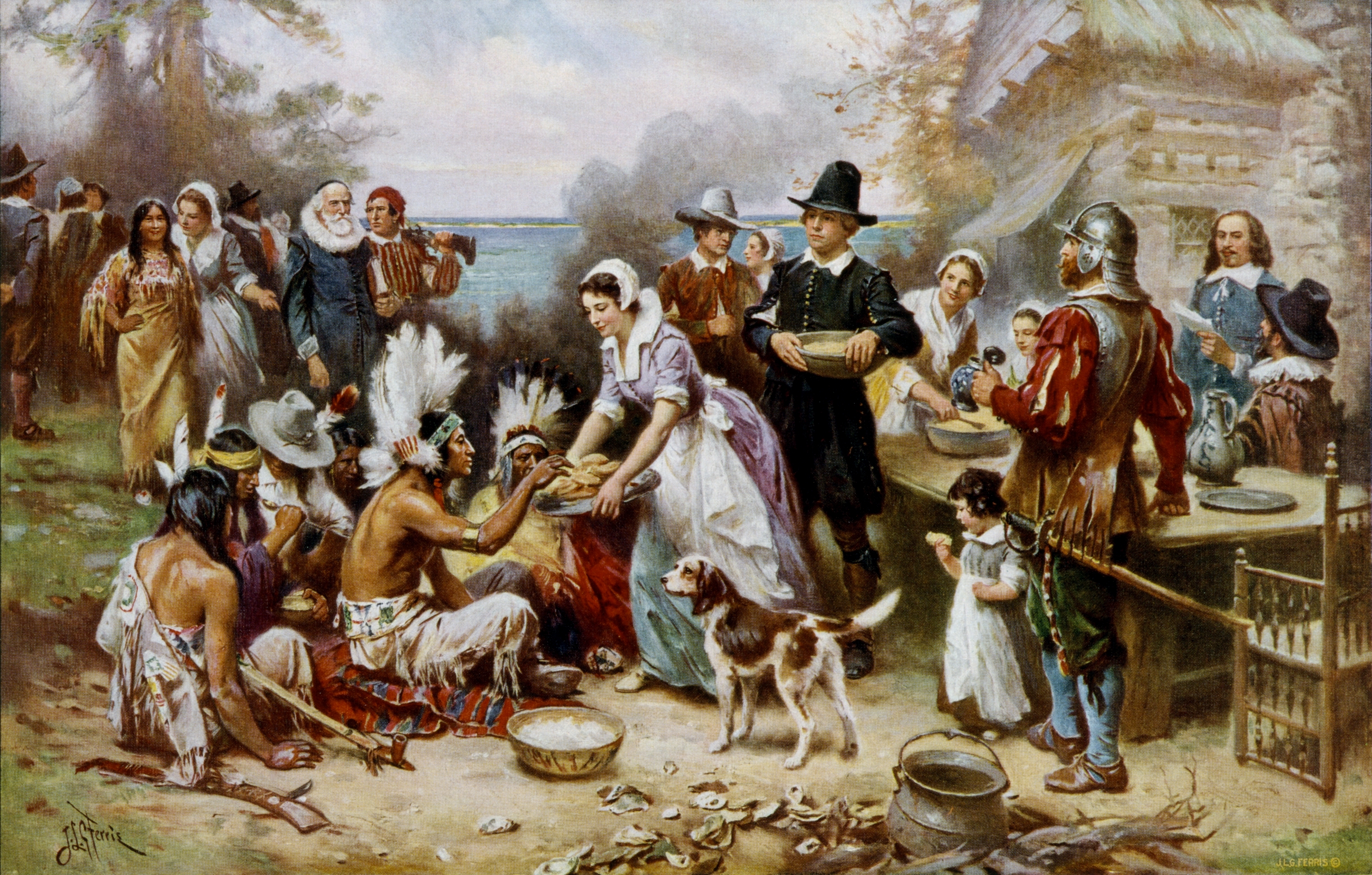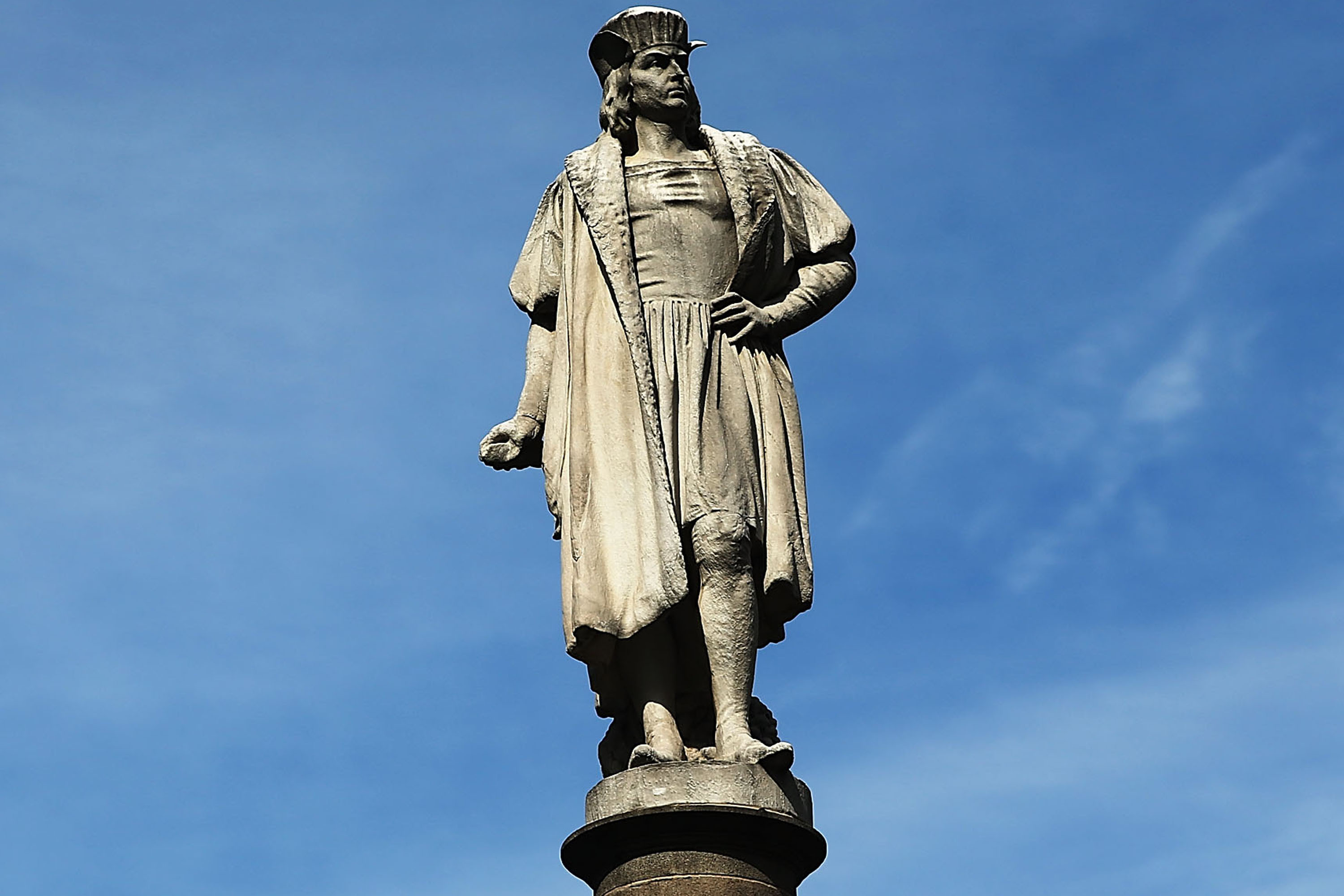Dakota Blackman
Indigenous
adjective | in·dig·e·nous | \ in-ˈdi-jə-nəs \
Produced, growing, living, or occurring naturally in a particular region or environment.

According to Merriam-Webster, the first known use of the word indigenous was in 1646, nearly 150 years after a year embedded in the brains of most schoolchildren in the United States: 1492, a year that my peers and I in our New York City public elementary school learned was famed for being when Christopher Columbus sailed the ocean blue in search for India, but instead made the great discovery of America, the New World. We were told how crucial it was to remember the most minute details. In elementary school, it was Columbus’s country of origin (Italy, though his famed voyages were from Spain) and the names of his ships (the Nina, the Pinta, and the Santa Maria). In middle and high school, we learned about the contribution of the spice trade to Columbus’s incentive to set sail and about its importance in the formation of a global economy. Though different layers of complexity were added as we got older, the two-fold takeaway was meant to be clear. First, Columbus discovered America. Second, Columbus discovered its native population. We were taught that Columbus thought himself to be in India when he landed, so I first learned to call the indigenous population Indians—by the time I reached high school, we were told to credit Columbus with the discovery of America and of Native Americans.
It was always around this time, at least in elementary school, where we would begin to jump forward a couple hundred years in our studies and learn about the Puritans in England. Again, we were given a simplified version of the story in which the Puritans were being persecuted for their religious beliefs, so they set sail and took up residence on the land Columbus had discovered. There, they were greeted with a slew of difficulties, the biggest of which was their inability to grow food on their new, inhospitable land. Of course, we were then taught about the kind Native Americans who taught the Puritans about hunting and gathering food, ensuring their survival and helping prepare a feast for the fall harvest. The first Thanksgiving, we were taught, was a celebration of harmony between the Native and Puritan populations.
The reality, I later learned, was very different. The ramifications of colonialism—both Columbus’s and the Puritan’s—were grave and far-reaching. Columbus didn’t discover mainland America, as we were taught, but instead landed on Hispaniola (present-day Haiti and the Dominican Republic). The Taino people were indigenous to the land, but their exploitation for slave labor, and the exploitation of their land for a trade route, ultimately led to their complete obliteration by 1535. The trade route that connected this land to mainland United States also brought with it diseases to which indigenous populations were not immune including, but not limited to, measles, mumps, chicken pox, smallpox, influenza, and pneumonia. European settlers did not offer indigenous people protection against these diseases. On the contrary, in 1763, to combat the Native Americans’ efforts to unify, British forces distributed blankets infected with smallpox to produce an epidemic.
A systematic effort to reduce native populations’ rights and power has consequences that extend to the present day. The American Indian Youth Organization reports statistics on poverty, unemployment, and lack of resources in education and infrastructure in Native American communities and reservations. Native American land today—much of which is sectioned off on governmentally-determined reservations—is being disrespected by the United States government. A prime example is that of the Dakota Access Pipeline (DAPL), an oil pipeline that the United States government intends to build through the Standing Rock Reservation in North Dakota. It amassed news coverage this past year as protestors, many from the Standing Rock Sioux tribe, were met with rampant police brutality, simply for fighting for their right to clean water. Despite the health and environmental risks, which will affect the Sioux tribe in particular, the pipeline will continue to remain operational.

In 1870, Thanksgiving became a federal holiday. In 1937, Columbus Day followed suit. As of October 9, 2017, there are a number of states, cities, and universities in the United States that now celebrate Indigenous People’s Day in lieu of Columbus Day. There have been recent protests throughout the country to remove statues of confederate generals—so too have people protested removing statues of Columbus. The United States has a long and shameful history of crimes against indigenous people, and many activists believe that to celebrate Columbus Day is to celebrate these crimes.
Both Columbus Day and Indigenous People’s day have passed, but Thanksgiving is approaching—it is perceived as a positive holiday where we have the opportunity spend time with people we love, and to reflect on what we are thankful for. Given the recent eruption of the conversation regarding indigenous people, it may also be wise to reflect on our history, and on why Indigenous People’s day is being met with such skepticism; perhaps we can look to the language to tell us why. According to the definition above, indigenous refers to anything naturally-occurring in a place. When we apply such terminology to Native Americans in this country and call them indigenous people, there is a clearly implied juxtaposition: European colonialists were not natural, and therefore the presence of their descendants (many proud Americans) isn’t either. Though true, this fact is at odds with the inherent right that so many Americans feel they have to their land—a feeling that likely stems, at least in part, from the cultural erasure of a very real, albeit very difficult, part of United States history. The fact is that we have this land because we took it, and to keep this from children growing up in the United States (to teach them that Puritans and Native Americans were friends) does a disservice to all parties. Our cultural history must be a reflection of the full story.
